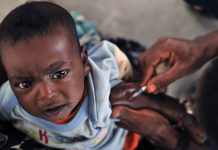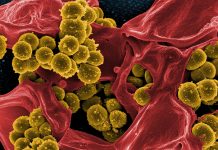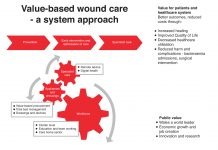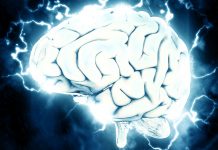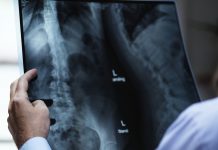Biomarker technology wins innovation prize
A pioneering blood testing biomarker technology has been recognised as one of the health innovations of the year by the Health Awards 2018.
The new...
EU proposes closer co-operation on health technology
The European Commission has announced a proposal to reinforce co-operation between member states on the assessment of health technology.
The proposal for a regulation on...
EORTC announces collaboration to advance precision medicine
Foundation Medicine and the European Organisation for Research and Treatment of Cancer (EORTC) announce a collaboration to advance precision medicine using comprehensive genomic profiling...
EU ministers meet to discuss air pollution issue
European Commissioner for Environment Karmenu Vella has invited ministers from nine member states to convene in Brussels, Belgium, today (30 January) to find solutions...
Spotlight: the Bill & Melinda Gates Foundation
Health Europa Quarterly highlights the work of the Bill & Melinda Gates Foundation to eliminate infectious and tropical diseases.
The Bill & Melinda Gates Foundation...
Antibiotic resistance at higher levels worldwide
The World Health Organization’s (WHO) first surveillance data on antibiotic resistance reveals high levels of resistance to a variety of serious bacterial infections across...
Mental health and men: let’s talk about it
Dr Ian Banks, the president of the European Men’s Health Forum, reflects on mental health in men and the high rate of male self-harm...
Rheumatoid arthritis symptoms worsen with menopause
A new study from the British Society for Rheumatology suggests that women with the menopause suffering from rheumatoid arthritis are in greater physical decline.
The...
Brexit could disrupt medicine supplies to patients across Europe
The impact of Brexit could cause major delays in the supply of medicines to patients across Europe, according to a briefing paper from the...
Women suffer more with insomnia in late stage of pregnancy
A new study led by the University of Granada, Spain, has revealed that 64% of pregnant women suffer from insomnia in the third trimester...
Low vitamin D levels exacerbate irritable bowel syndrome symptoms
A new study published in the European Journal of Clinical Nutrition has found that the level of vitamin D in the system can contribute...
Innovating wound care
Professor Michael Clark, Maureen Fallon and Professor Keith Harding, of the Welsh Wound Innovation Centre, advocate a system approach to value-based wound care.
The impact...
A platform for pancreatic cancer
Pancreatic cancer is set to be Europe’s second leading cause of cancer death by 2020. Why, then, is funding so low? Pancreatic Cancer Europe...
Lifestyle change can prevent cognitive decline in APOE4 gene carriers
A new study has found that having lifestyle counselling can prevent cognitive decline in those carrying the APOE4 gene, a common risk factor of...
The hidden secrets of hepatitis C
A group effort between physicists, biologists and engineers has led to a novel method to analyse a key protein in hepatitis C virus. Collaborators...
Number of lymph nodes to determine head and neck cancer prognosis
A new set of guidelines have been implemented when assessing the severity of head and neck cancers based on the number of lymph nodes,...
AI, robotics and the transformation of healthcare
AI and robotics will shape the future of healthcare delivery, but only if we let them, argues PwC’s Brian Pomering.
Would you trust a diagnosis...
Exploring endocrinology
Health Europa explores the causes of endocrine disorders and the work the European Society of Endocrinology is doing to improve treatment.
Endocrinology is the medical term...
The HIV epidemic in Ukraine
Years of military conflict in Ukraine are threatening to undo hard-fought gains in the fight against HIV. Elena Voskresenskaya, of International Charitable Foundation "AIDS...
Can we end paralysis?
Corinne Jeanmaire, of the endParalysis foundation, says a cure for spinal cord injury is possible, but it will take time, resources and a smart...





